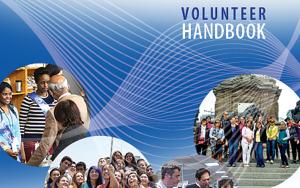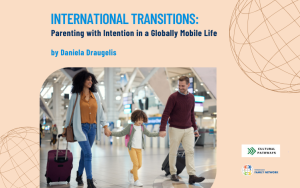For many years, domestic abuse was a taboo subject. Some believed the myth that, unless physical battery was involved, no abuse existed. Others just blamed the victims. We’ve come a long way since then!
The Spouse Issues Committee got its name in 1996, an outgrowth of our “Pension Rights on Divorce” initiative formed in 1993 as a resource for Bank spouses and staff facing marital breakup. The name of today’s Committee reflects the position that these issues pertain to all WBG spouses/partners and staff, not just those facing divorce.
Due largely to the determined lobbying of our volunteers, themselves spouses, the WBG altered its Staff Retirement Plan, as of January 2, 1995, to “permit payments…for the support of divorced or legally separated spouses of retired Plan participants,” becoming the first international organization to recognize U.S. court orders enforcing pension distributions to staff spouses.
WBFN’s Spouse Issues Committee continues to focus on lobbying for family-friendly policies and aims to help members in need get the appropriate access to information and to resources in close collaboration with the Bank’s Human Resources Domestic Abuse (DA) Prevention Coordinator Elizabeth Legrain.
With two of their champions and former WBFN presidents, Rosa Lia Troch and Chantale Holzmann, leaving headquarters after a decade of lobbying and fighting for victims of abuse, WBFN Spouse Issues Committee thought it was appropriate to review here the recommendations they provided in 2003 to the then WBG President, Mr. James Wolfensohn, and to assess the progress made and underline the pending challenges.
1. Provide some free legal assistance to victims
Spouses continue to be disadvantaged in court, as most do not have the means to pay for litigation. Pro bono services are almost impossible to get for WBG spouses, as they are “perceived” by the community as being wealthy, which they are not. Being on G4 visas, they also are not eligible for many free social services available to U.S. citizens. Some of the victims even have to live in shelters with their children while waiting for the abuser to pay family support. WBFN and the DA Prevention Coordinator continue to explore options, but due to the recession, the pro bono avenue does not look bright.
One positive outcome is that since 2005 each victim of abuse can receive up to US$7,500 from the HUB, an amount directly paid to the attorneys, so that victims can sort out their chances of staying in the country if they choose to do so. Furthermore, the World Bank has contracted with DV LEAP, a domestic violence specialists and lawyers group that advises victims’ attorneys in the maze of DA legal battles. DV LEAP, affiliated with George Washington Law School, provides professional DV legal consults with victims of abuse regarding their legal situation and needs relating specifically to family law and protection order issues. They help victims to retain particular DV knowledgeable attorneys, including communicating with said attorneys to assist in placing the case. If necessary, they will provide technical assistance (consultation) with victims’ attorneys to assist them in adequately addressing the abuse issues, including suggesting legal authorities and resources. Currently, three national experts work on the program. DV LEAP is updating a referral list of DV attorneys in the tri-state area that it developed in January 2008 to include both pro bono and fee charging attorneys. The attorneys on the list have reasonable expertise in domestic violence as well as family law.
Legal fees remain a huge burden for victims, and abusers know how to play with the legal system, to let the issue drag at length, leaving their victim destitute, even after the divorce has been settled. Sadly, a divorce does not stop the abuse; in many cases it reinforces it. Collaborative Divorce, a relatively new legal process in the U.S. for a legal separation or divorce, costs much less when both parties agree to this form of litigation. Nonetheless, in any level of abuse or conflict, it is strongly discouraged.
2. Identify a champion and issue a strong corporate statement
WBFN wants to thank Managing Director Ngozi Okonjo-Iweala for her strong appearance in the WBG October 2008 event to promote DA awareness. Together with HR VP Hasan Tuluy, she denounced the assumption that the WBG was immune to the issue and recommended that measures be taken. Her speech addressed numbers of cases in past years, what the Bank could be doing better, and accelerated efforts to amend Staff rules. Short of calling Mrs. Okonjo-Iweala a DA champion, WBFN wants to thank her for her commitment which brought an immediate response within the institution.
Since January 2009, HR has moved the DA Prevention program from HRSGM, Global Mobility, to HRSCO, Corporate Operations, supervised by Fons Marcelis. This strategic move by VPHR is to elevate the program to be managed by a Senior HR officer. Fons is motivated to work with the Task Force to move the program forward.
3. Amend Ethics Code & SR 8.01
As per the 1998 Policy, the World Bank had adopted procedures designed to ensure (a) provision of pertinent information relating to salary and benefits to a spouse, even if the partnered staff member blocks such access, and (b) greater compliance with spousal-and child-support obligations. The two changes to that 1998 Policy are:
1) A shortening of the time period—from thirty calendar days to five business days—for a staff member to provide the WBG with evidence of compliance with his or her personal legal obligation as referenced in the 1998 Policy. The time period starts on the date that the staff member is contacted by the Office of Ethics and Business Conduct. In the amended 1998 Policy, the
staff member must have:
- Provided the salary and/or benefits information as requested by court order or request from a judicial or civil authority in the context of divorce or child support, or
- Paid spousal or child support as per the court order.
This change was precipitated by cases where spouses suffered disastrous consequences (including, in some cases, eviction) due simply to the 30-day period allowed for the staff member to respond and meet his or her personal legal obligations, especially with respect to spousal and child support.
2) The second change addresses staff members who repeatedly fail to make court-ordered spousal or child support payments. If the WBG receives a second or subsequent court order for the payment of spousal or child support regarding the same staff member, or receives a complaint (together with the court order) about a late or partial payment for spousal or child support already ordered by a court, the Office of Ethics and Business Conduct will contact the staff member and give the staff member three business days to demonstrate to the satisfaction of the Office of Ethics and Business Conduct that he/she has complied with the court order. Otherwise, the Bank Group will authorize the deductions for spousal or child support from the staff member’s salary in accordance with the court order.
4. Provide staff and spouse education: the WBG Domestic Abuse Awareness Program
Education of staff and families is a key ingredient in preventing the escalation of domestic abuse. WBFN is very grateful to Elizabeth Legrain, the DA Prevention Coordinator, for putting up many seminars and presentations to serve that purpose. This year’s seminars were: “Third Culture Kids” (Dennis Hunt), “Emotions Friend or Foe” (Patricia McGraw), “Raising Children Between Two Cultures” (Pilar Alfaro-Palacio), and “Building Healthy Relationships” (Claudia Niemtzoff). All were well attended and were topics which did not contain the deterrent word “abuse” but whose contents served to illustrate various situations in which a person loses self esteem and the results of it.
On October 1, 2008, Former Secretary of State Madeleine Albright gave the keynote speech to launch DV Awareness Month in the U.S. Batalan Drums captivated the crowd as they performed in advance of the session. The Info Shop organized this well-attended event with a capacity crowd of 600 in the World Bank Preston Auditorium, open to outside media. Dr. Albright called on the audience and on all of society to recognize and prevent the problem. An important step in curbing such abuse, she said, is not making any excuses for it: “Make no mistake. When a man beats his wife, or when an employer hits a household servant, the issues involved are not cultural; they are criminal, and the remedy is not a wink and a shrug, it is an arrest warrant and jail.” This unforgettable event, “Partnering to Prevent Domestic Abuse,” was co-sponsored by the World Bank, the International Monetary Fund and the Inter-American Development Bank.
On October 29, 2008, Elizabeth organized a panel on domestic violence titled: “What You May Not Know!” Panelists comprised of Aulikki Kuusela, HRS VP Program Director; Professor Joan Meier, George Washington University and Director of DV LEAP; Patricia Hoff, Child Abduction and Response legal expert; Patricia Romano McGraw, forensic psychologist and author; and Helen Hall, DC DV Police Unit Advocate. WBG victims whose children have been abducted gained more insights in the complexity of the problem, especially when dealing with overseas, staff immunities and employer’s bureaucracy.
5. Accountability
Develop and institute standard protocols, information sharing, and monitoring and evaluation mechanisms to resolve abuse cases in an equitable and timely manner. Since the creation of the HUB and the DA Prevention Coordinator position, a more comprehensive and coordinated approach to helping victims has been put in place. The HUB draws together representatives from the Bank’s Benefits, both the Bank’s and the IFC’s Human Resources departments, Business Conduct and Ethics, Legal, Health Services, Security, the Staff Association and the Family Consultation Service/COPE (COPE plays an essential role in identifying whether a call to its 24X7 hotline is a DA case, and whether the safety of the caller is at risk).
In November 2008, the Bank became a corporate member of Corporate Alliance to End Partner Violence (CAEPV). On October 24, 2007, WBFN and many HR and HSD representatives attended the presentation “Can We Afford to Overlook Abuse?” by Kim Wells, Executive Director of CAEPV (caepv.org). CAEVP has more than 100 members, for the most part large private U.S. companies like Liz Claiborne, Xerox, etc. By becoming a member of CAEPV, the World Bank recognizes that Domestic Abuse:
- Is not simply someone’s “private or personal business.” It costs employers a great deal in a number of ways, including the potential for putting co-workers at risk.
- Does not merely affect a small or isolated number of individuals. If we consider only the classification known as “domestic violence” (as opposed to “domestic abuse”), according to statistics from the U.S. Justice Department and Center for Disease Control, 25% of women and 7% of men are affected.
DA Prevention Coordinator Elizabeth Legrain deserves our continued applause and respect for the immense work that she performs on behalf of the victims. What makes her and WBFN unique in this endeavor is that she shows the same respect and gives the same level of attention to all victims, spouses or staff alike. Adding the coordination of prevention training programs and seminars to all of her other considerable tasks is, in our view, a lot for merely one person, no matter how dedicated and experienced. We hope the Bank’s upper management will give this vital issue the recognition and resources it deserves, and increase staffing sufficiently to help Elizabeth fulfill the demands of the program.
What are the red flags that the WBFN Spouse Issue Committee still sees and which will require extra attention and hopefully a fair outcome for victims of abuse?
- In 2009, we still see victimized spouses, often already disadvantaged by inadequate English skills and meager financial resources that become further depleted by the cost of legal representation, be obliged to struggle through additional legal and financial hurdles and administrative humiliation to get their rightful due, while the at-fault staff use their Bank position and status to impress the courts or delay court appearances, even resorting to dubious foreign court orders to avoid paying support, not to mention staying overseas or using missions to avoid being served U.S. court orders.
- In 2009, we still see spouses who hear about their “divorce” the day the Bank notifies them that they are not medically insured any longer. Husbands provide the Bank with divorces from overseas jurisdictions. The Bank accepts them. But lately the MD court has ruled on many spouse divorce cases of this sort, some in the higher court of appeals, granting pension rights for spouses. MD also has ruled that a resident of the state has a right to a due process divorce regardless of legal status, i.e. illegal. These cases are particularly important for spouses who suddenly find themselves divorced, without legal status and monetary resources. WBFN feels that the Bank’s policy of removing a G-4’s visa and insurance after 60 days from a life-changing event is too fast. As we know, abusers wait until they must inform them of Aetna policy removal and by then a spouse has less than 30 days to react. In some cases, spouses need to leave the country before they can litigate, as court process is slow. In other cases, the Bank staff resigns from the Bank and the spouse is the last to know. He is out of the country before she can obtain court orders for support. The position of the WBFN Spouse Issues Committee is that the U.S. justice should prevail and the Bank should be more cooperative in letting the U.S. courts work. Blocking of information should also be lifted, as it is in corporate U.S. firms, and staff should be easily subpoenaed if that is the decision of the court.
Further on, the Spouse Issues Committee feels that spouses should be reimbursed directly for their medical expenses, instead of having the staff be reimbursed and overseeing the spouse’s health history, which can work against her at court.
As a conclusion, WBFN Spouse Issues Committee recognizes that a lot of progress has been made since 2003 but that a lot still remains to be done to protect the families in difficulties.
WBFN would like to thank the following individuals who have been particularly attentive to our program: Jack Maginnis, a DC attorney, who practices in the three jurisdictions, provides one hour pro bono consults to referrals and is a panelist at WBFN’s annual Family Law seminar; Anne Albright, attorney with Albright & Rhodes, who practices in MD and DC and has litigated on some challenging G-4 issues to benefit the program; Jacqueline Antoine, a French psychologist, who has counseled many Francophone spouses through NVFS; Dr. Patricia McGraw, a MD forensic psychologist experienced in abuse, who has provided advice in development of the program; Bill Silverman, HR Benefits Program Manager, who continues to devote his expertise; and Geremie Sawadogo for his management of the DA Prevention program for the past three years until January 2009. Special thanks go to the House of Ruth for providing state of the art support to WBG victims in their shelters, and to the House of Ruth, MD, for continued support to our most severe cases of DV. Thanks also to the WBFN Quilting group for auctioning a beautiful handmade quilt to benefit the House of Ruth. Thank you to Louise Shimizu, the WBFN Coordinator, for overseeing the technicalities of the Barry McIsaac Emergency Fund and instigating a complementary resource sheet for spouses seeking information on divorcing. Thank you also to the new volunteers who have joined the Spouse Issues Team and will be fighting for more fairness for victims of abuse. The former members remain as advisors to the team and will do their best to bring support and institutional memory to make sure that battles fought and won over two decades will not be forgotten.
Chantale Holtzmann and Rosa Lia Troch






